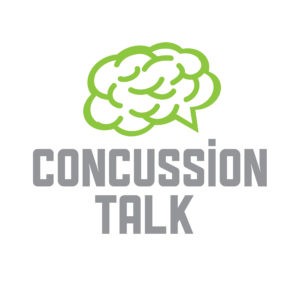As much as I can, I read about and watch professional contact sports. I also read, and have read, a lot about the financial crisis; more specifically, what led to it. Naturally, since I was brain injured in 2003, I have become very interested in brain injury. Hence this blog.  I have also taken a bigger picture view of almost everything and, influenced by many books I’ve read, notably Collapse by Jared Diamond, I’ve been noticing similarities between different situations and events in society. Not connections or links. Similarities in our perception. They make sense to me – that’s why I thought of them. They’re not perfect or identical, they’re similar, the theme is the same. I see the same prevailing theme in the lead up to the financial crisis as we have seen in the current concussion/brain injury issue in professional contact sports.
For the purposes of this post, I’ve picked two themes that I think run through both situations; “arrogance” and “wishful thinking”. It was arrogance on the part of banks who thought they could make the market do what they want, creating financial instruments (and fitting mortgages into these securitized instruments) Â that would generate big short term profits, ignoring the long term consequences. The bankers had to sell/lend these instruments/mortgages to someone. Whether the buyers/borrowers were deceived or not is not what this post is about. The buyers/borrowers of these financial instruments ended up losing a lot.
The banks are like the teams, leagues and the fans. For teams and leagues, they give players contracts to play, and the teams and leagues reap short term profits from tv contracts, merchandise, and ticket sales, arrogantly assuming that they can benefit from watching players play very physical sports, delivering big hits, never considering what toll this would have on the longevity of the players or the league itself. Â Fans give the leagues and teams money so they can be entertained and watch their favourite players play (whether by buying tickets or watching it on tv). Basically, the lenders. Players are the buyers/borrowers. They want to play the sport they love and make lots of money doing it. Consequences be damned. Just like people wanted to buy houses and a bunch of other stuff, not thinking, wishing away the potentially negative long term consequences.
I told you it wasn’t perfect, but I think it fits with the general attitude of society. Just as there was a massive housing market bubble in the U.S, pre-financial crisis, there is a bubble in pro contact sports where players hit as hard and as often as they can, thinking only of the short term benefits, while ignoring the long term and recurring consequences. As many borrowed beyond their means from banks, many players are borrowing from the future, from their long term health. Since retirement in pro sports comes at such a young age, their long term health means most of their life. Fans, leagues, and teams are all eager to pay to watch players make these big hits. Insurance companies were also part of the financial crisis, and I think they could be one of the deciding factors of the longevity of professional contact sports. Recently, Bernard Pollard, safety for the Baltimore Ravens and one of the hardest hitters in the NFL, said that the NFL wouldn’t exist in 30 years because fans will become fed up with the new rules protecting players against hard hits. There have been comments from former players that they wouldn’t let their sons play, and U.S. President Obama that, if he had a son, he wouldn’t let him play. Although arguing different points, Pollard, some of those former players, and Obama all support the argument that the NFL will have difficulty recruiting  – players or fans – due to lack of interest. What about insurance? It would seem logical that insurance would become prohibitively expensive if brain injuries continue to sideline athletes.
In the financial crises, interest rates shot up, leading people to default on their mortgages, the snowball effect then led to the collapse of several financial institutions in the U.S. Why won’t that happen to pro contact sports? Won’t the insurance  premiums go way up, leading to teams not willing or able to spend on players, snowballing across the league?
This is one of those big picture views, but it’s by no means an endorsement of the conclusion. How sad would it be if people stopped playing amazing team sports due to financial issues? I think there’s hope. I saw Bob Costas on The Daily Show, and Jon Stewart and he were talking about the “gun culture” in the U.S. Costas was talking about how society’s attitudes toward many issues have changed, for example, how quickly society’s views on smoking have changed recently. If attitudes can change quickly in a large society in which rules, regulations and ‘socially acceptable norms’ are more difficult to enforce, then surely attitudes towards brain injury in pro sports – a smaller society in which rules and regulations can be relatively easily enforced – can quickly adapt.
Go Niners!

Leave a Reply